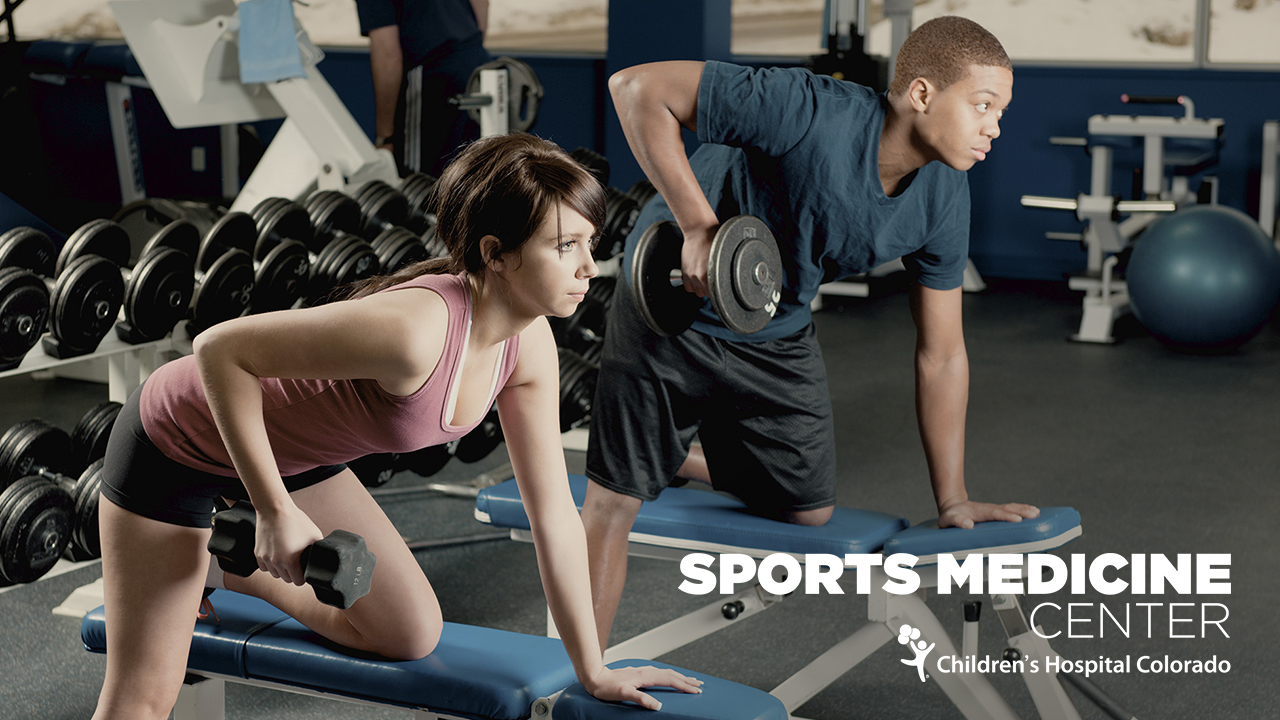Weight training is a great way to improve your performance and prevent injury. However, there are many common weigh training mistakes that can lead to injury and keep you out of the game longer. Fortunately, our partners at Children’s Hospital Colorado have expert tips for how high school athletes can stay healthy, safe and strong when they’re in the weight room. From dynamic warmups to proper form, this article will show you how to use weights in a way that helps rather than harms.
There are many differing opinions when it comes to weight training among young athletes. Weight training should be an opportunity to help prevent injuries, not cause them. However, we see way too many injuries that come from high school weight rooms in our Sports Medicine Center Physical Therapy Clinics.
It is important to first find out when, where and how it is safe for kids to start weight training. Once you’ve determined your young athlete is ready to weight train, these tips from our sports medicine team can help keep them safe.
Four tips for weight training
1. Warm up before you weight train
- Check out online resources that provide practical dynamic warm ups that are evidence-based and have been shown to reduce the risk of injury.
- Prevent injury and Enhance Performance (PEP) Program
- FIFA 11+ warm up program
- Dynamic warm-ups have been shown to be better than static stretching in reducing risk of injury.
2. Get proper instruction and use proper form
- Improper mechanics are risk factors for injury. Weight training is a great opportunity to practice proper body mechanics and choose movements that are the appropriate skill level for the athlete.
- Proper joint alignment and proper postures are the simplest of guidelines to follow.
3. Complexity of movement and resistance should be progressive
- Power lifting movements such as the power clean and snatch should not begin until an athlete has mastered basic squatting, front squatting, plyometrics and more basic overhead movements.
- These higher level exercises should be taught with systematic progressions.
- Avoid emphasis on competition and amount of weight lifted until the movement is mastered.
Weight training should be viewed as an opportunity to prevent injuries, not cause them
- No exercise should ever cause pain.
- Increasing resistance or movement complexity too quickly can easily lead to injury.
- The weight room is a great place to incorporate variety of movement in the athlete’s routine and teach them new skills if done properly.
Check out more sports articles from our sports medicine team.

